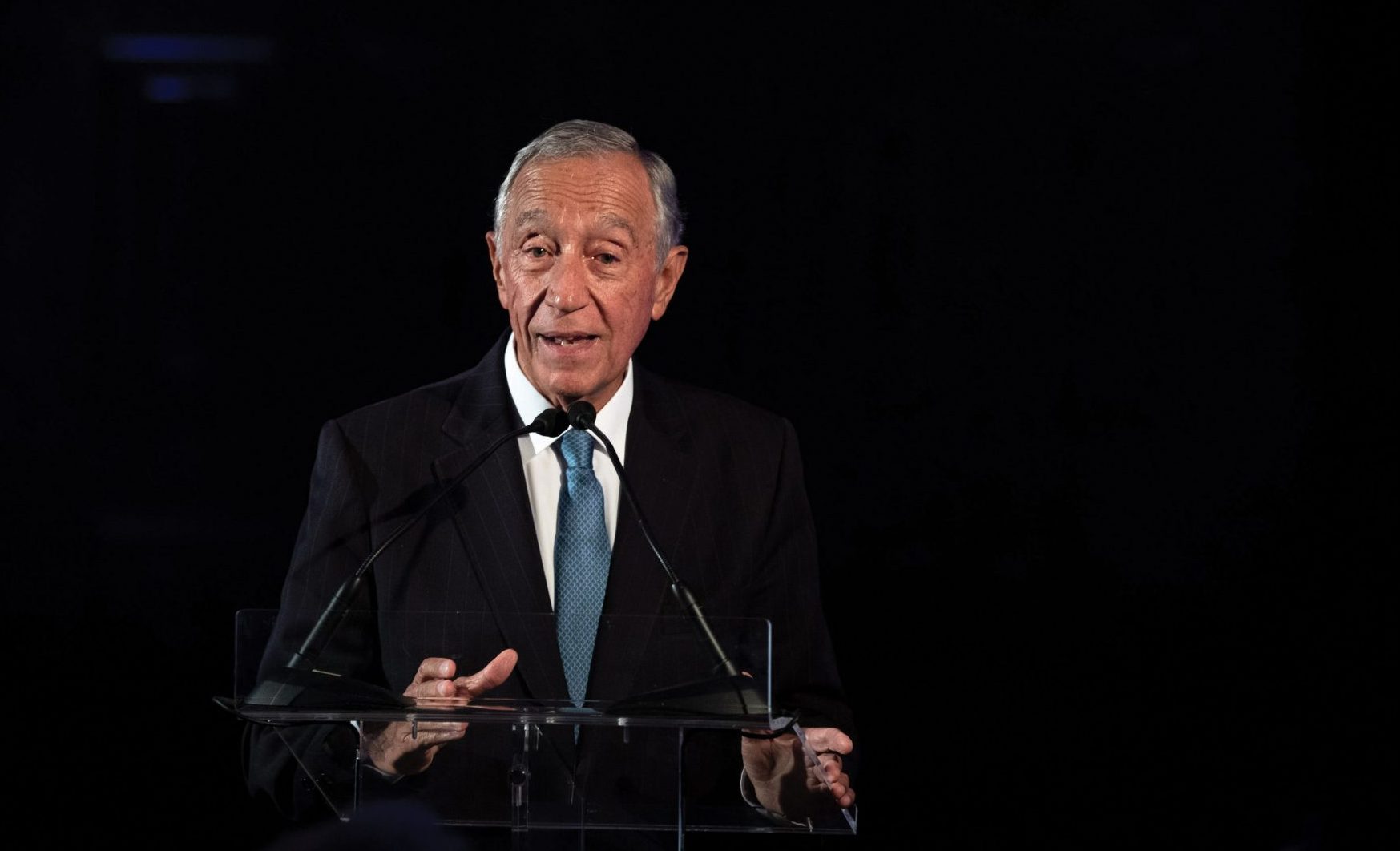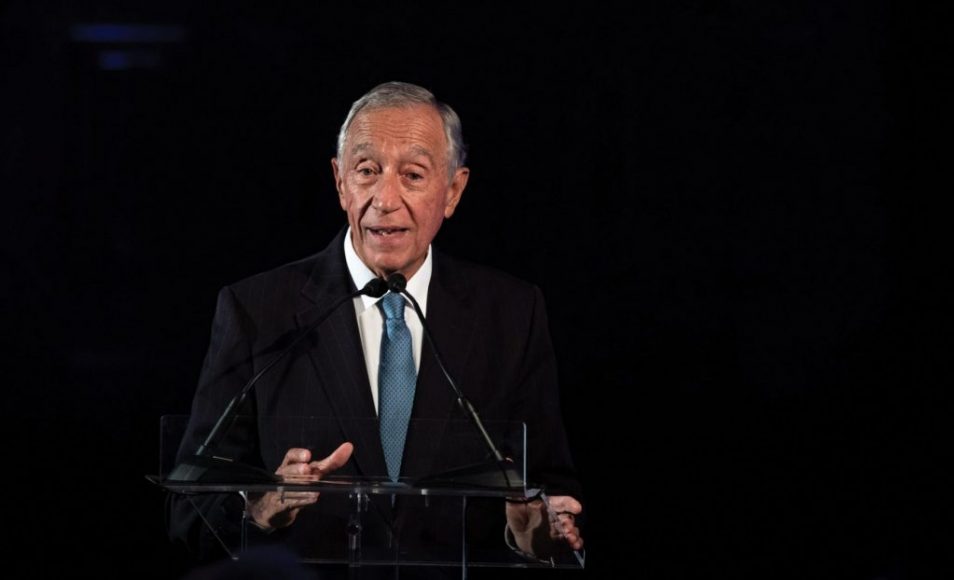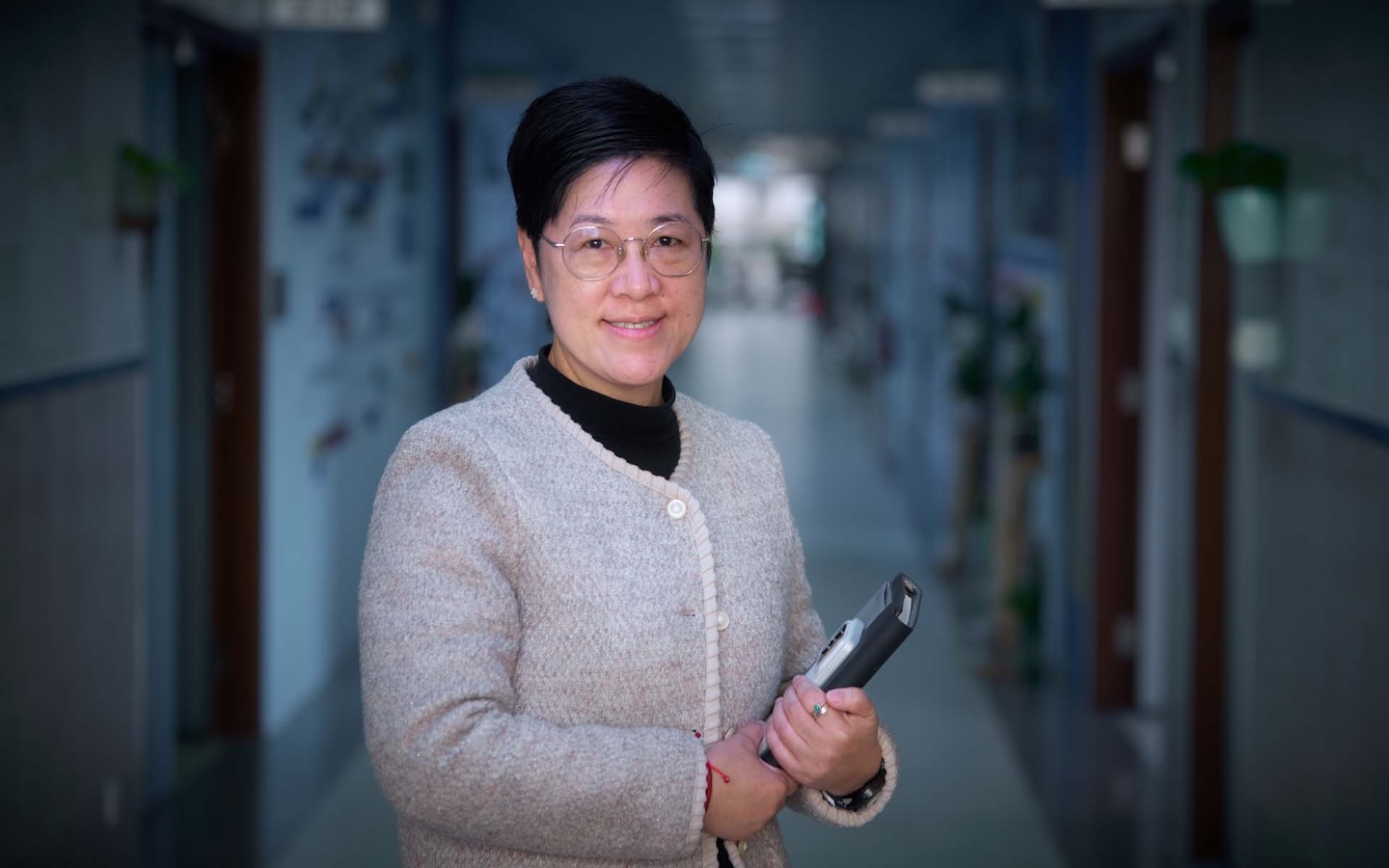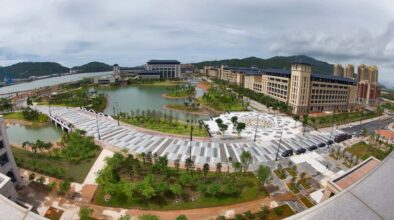Political, legal, media and other high profile representatives of Macao and across the world talk exclusively to ‘Macao Magazine’, giving their thoughts on the past two decades and the future of our city.
Our mutual knowledge
The President of Portugal, Marcelo Rebelo de Sousa, celebrates the strong relationship between his country and Macao in the lead up to the 20th anniversary.

I recall and welcome the understanding that was possible to be built between the two states [of Macao and Portugal] which have lived together for centuries, thus signalling a mutual knowledge made of past experience and a willingness to continue [this experience] for the future. The ever-friendly and special relations between Portugal and China would never have happened without Macao’s unique contribution, namely by playing its role as a platform for China in the dialogue not only with Portugal but with all the Portuguese-speaking world. Macao has the ability to boost or optimise the China-Portuguese speaking countries connection.
The sea’s the limit
Susana Wong, director of the Marine and Water Bureau, focuses on Macao’s marine area management over the past 20 years and beyond.

For historical reasons, Macao used to have no clear jurisdiction over its waters, although the government had been managing the customary waters nearby before and during the early stage of the handover of Macao in 1999, including marine traffic control, navigation safety, maritime activities supervision and maritime search and rescue. In the early stage of the handover of Macao, as I remember, Macao and Zhuhai had different opinions on the management of the customary waters. After communication and co-ordination, the two places agreed to maintain the tacit understanding on the management scope of the customary waters and strengthen the co-operation in maritime management to jointly guarantee maritime safety.
Under the plan approved by the State Council at the end of 2015, however, the territorial waters of Macao were defined as an area of 85 square kilometres. Since then, the SAR government has made a number of important deployments for maritime management including the establishment of the Commission for the Co-ordination in the Management and Development of the Maritime Area, the signing of three co-operation agreements with the Mainland authorities, the demarcation of the SAR’s coastline and the legislation of the Maritime Area Management Framework Law, which created a better frame and basis of maritime management. The Marine and Water Bureau is currently working with legal departments on the legislation of the law to establish legal procedures for obtaining the right to the use of the marine area and a monitoring system for its usage.
When it comes to exploring marine economy, it is important to make full use of the sea area to develop coastal tourism and maritime traffic and to promote ourselves as a World Centre of Tourism and Leisure. After defining the territorial waters, two shipping companies have successfully launched marine tourism projects, covering Macao, Taipa and Coloane. I participated in the first voyage of these sea routes, during which I enjoyed the unique scenery along the coast of Macao, such as the Hong Kong-Zhuhai-Macao Bridge and the mangrove forest in Cotai.
At present, we are advancing the construction of a temporary pier near A-Ma Temple for sea tours and government vessels. In the future, we will continue to look for suitable sites to set up piers along the coast of Macao to promote the diversified development of maritime activities. The bureau has also been encouraging and supporting more maritime passenger routes, especially connecting Macao with other cities in the Greater Bay Area. It is believed that, over the coming years, the industry will open up more routes and make further use of the sea area to strengthen transport links between Macao and other GBA cities so as to facilitate communication, economic and cultural exchanges within the GBA.
A land that welcomes all
Leonel Alberto Alves, lawyer and member of the Executive Council of Macau, praises the city’s government for its work over the past 20 years and sees a consolidation of its ‘harmonious and dynamic society’ in the decades to come.

At this time for taking stock, we should recall that, in 1999, Macao was not ready to fully exercise the powers that the Basic Law generously granted it. And so, the first five years involved a titanic effort to organise Macao’s functioning in all of the essential aspects of public life.
Thanks to Edmund Ho’s excellent leadership, his charisma and his natural empathy for the people, for all of the different communities, and his vision of economic development, Macao – which before the transition had experienced times of relative stagnation and disquiet – enjoyed strong growth and a qualitative leap with unlimited effects.
Macao – which before the transition had experienced times of relative stagnation and disquiet – has enjoyed strong growth.
Subsequent governments implemented – and well – a policy of redistribution of the wealth created in Macao. They improved standards of education, enhancing quality at all educational levels, and provided considerable funds for study abroad. Protection for the most disadvantaged has, undoubtedly, been ever-present, with a clear commitment to improving the living conditions of the most underprivileged sectors of the population.
Laws could have been improved at a faster pace, especially at the economic-financial level. But the legislative framework for protecting rights and freedoms has been strengthened with several different laws and also with the modification of the Code of Criminal Procedure.
Some public services have substantially improved the quality of the service they provide. Others are still undergoing internal reforms – which are taking time – to help Macao increase its administrative effectiveness.
In short, 20 years on, Macao continues to be a land that welcomes everyone who wants to live here in peace and work to consolidate a harmonious and dynamic society with an excellent outlook for sustained and increasingly humane and prosperous development.
Twenty years of change
Yonghua Song, rector of the University of Macau, discusses how much the city’s education offerings have transformed since 1999.

Most sectors in Macao have experienced enormous changes over the past two decades. The higher education sector in general and the University of Macau (UM) in particular are no exception. This year marks the 20th anniversary of the Macao Special Administrative Region, so it seems an opportune time to recount some achievements of the university in teaching and research over the past 20 years.
In 1999, I was teaching in London. Like many of my fellow Chinese scholars based in the UK, I was excited by the handover of Macao’s administration to the motherland but I had only a vague impression of the city. At that time, Macao had a less developed economy, with minimal research outcomes. Today, the formerly obscure town has transformed into a cosmopolitan city.
I was not personally connected to Macao until being appointed an advisor to the SAR government’s Science and Technology Committee in 2002. Despite huge challenges, the government decided to invest in higher education and scientific research for the future. When I came to Macao to become the rector of UM last year, I was astonished to see the growth in these fields, where UM played a fundamental role.
Indeed, the 1999 handover of administration ushered in a new era for UM, which has since recruited considerably more students (more than 10,000 this academic year, from around 50 countries and regions). At UM, we deliver much more than just a university degree. Great efforts have been made to implement a unique ‘four-in-one’ education model, which consists of discipline-specific education, general education, research and internship education, and community and peer education.
A historic opportunity presented itself in 2009, when the National People’s Congress Standing Committee adopted a bill that authorised the Macao SAR to exercise jurisdiction over the new UM campus on Hengqin Island, Guangdong province, turning our new campus dream into a reality. As an outstanding example of the vitality of the ‘One Country, Two Systems’ policy, our new campus has world-class facilities and Asia’s largest residential college system. This has created favourable conditions for us to better serve Macao and to assume a greater role in supporting the nation’s overall development.
On the research front, with the support of the Ministry of Science and Technology and the local government, UM has established three State Key Laboratories, focused on microelectronics, Chinese medicine and Internet of Things applications for smart cities, respectively.
To expand the frontiers of science and technology, we have in recent years built numerous new faculties and institutes, including the Faculty of Health Sciences, Institute of Applied Physics and Materials Engineering, Institute of Microelectronics, Centre for Cognitive and Brain Sciences, Centre for Artificial Intelligence and Zhuhai UM Science & Technology Research Institute (whose new building was inaugurated just this October).
In all likelihood, Macao will continue to face tremendous changes in the years ahead but UM will remain committed to serving the local society, integrating with the Guangdong-Hong Kong-Macao Greater Bay Area, contributing to the country and creating a greater impact on the international community. With the accomplishments we have already attained, I am confident that we will scale new heights in the future.
One country, two systems, a great future
Wu Zhiliang, President of the Macao Foundation, praises the SAR for ‘surviving’ some tough issues in 1999 before creating a city that boasts a ‘harmonious social environment’ and ‘strong sense of national identity’ under the ‘One Country, Two Systems’ principle.

Macao is a city where Chinese and Western civilisations, different ethnicities, cultures and religions co-exist harmoniously and uniquely. Whether from the perspective of world history or Chinese history, Macao is greatly marvelled at across the globe.
The implementation of the ‘One Country, Two Systems’ principle over the past two decades has proved that Macao is indeed a miraculous city. Surviving social instability, economic recession and serious unemployment at the time of the transfer of sovereignty from Portugal to the People’s Republic of China on 20 December 1999 – as well as the outbreak of SARS in 2003, the ‘Great Recession’ in 2008 and the economic downturn in 2015 – Macao has developed into a prosperous, stable and vivid economy. It is now being seen by the world in a new light.
Macao’s development over the past two decades has fully proved the scientificness and the vitality of the ‘One Country, Two Systems’ principle. The harmonious social environment, the inclusive cultural background and the strong sense of national identity shared by Macao’s population have provided ample prerequisites for the successful implementation and development of the principle.

Like any other city, there are problems – and, indeed, new developments – associated with the growth of Macao. Issues such as wealth distribution, housing, transport, education, medical care and the competitiveness of the youth need to be addressed. Since these are difficulties associated with the development of Macao, solutions are required actually through development itself.
The people of Macao never complain. They firmly believe that a better tomorrow can be created with their own wisdom and strength.
The people of Macao never complain. They work quietly and realistically. They firmly believe that a better tomorrow can be created with their own wisdom and strength. They also believe that there are local potentials and values to be further excavated. Only if they work together can they contribute more to the nation – and to the world.
The policies and initiatives of the Chinese government, like the Belt and Road Initiative and the Guangdong-Hong Kong-Macao Greater Bay Area, as well as the strategic positioning of Macao as a world-class tourism and leisure centre, a service platform for economic and trade co-operation between China and Portuguese-speaking countries and a base for exchange and co-operation with Chinese culture through the co-existence of many different cultures, provide unlimited space
for Macao’s future development.
The central government also anticipates Macao will more actively contribute to the full opening up of the nation, as well as integrating into national development, participating in national governance and promoting international civilian exchanges. Only when we seize this opportunity and bravely face the challenges that lie ahead can Macao’s potential be fully realised – and, then, endless miracles can be created.
From ‘sleepy enclave’ to global hub
Harald Brüning, director of ‘The Macau Daily Post’ newspaper, gives his thoughts on the past few decades in the SAR – and looks to a rosy future.

When I visited Hong Kong and Macao for the first time in April 1980, the former was known as the ‘Pearl of the Orient’ and the latter as the ‘sleepy enclave’. Macao was also known as Hong Kong’s ‘poor cousin’. Well, epithets should always be taken with a pinch of salt. For instance, some writers at that time also referred to Macao as Portugal’s very own Pearl of the Orient – or ‘Pérola do Oriente’. After visiting Macao around Easter nearly four decades ago, I found the ‘sleepy enclave’ sobriquet rather asinine as I could easily confirm with my own eyes and ears that the then Portuguese-administered town was very much awake.
Macao at that time already had a thriving tourism industry and one of the world’s highest per capita textile production rates. It was also a major international centre for the production of artificial flowers – and in the previous decades it was a world centre for the production of firecrackers. Curiously enough, however, during my first visit to Macao I bought a book by a Portuguese visitor who described the town (that’s what it still was back then) as ‘Portugal’s relic in the Orient’. Well, it was a very lively relic indeed.

Of course, in purely pecuniary terms, Macao in the 1980s was still much ‘poorer’ than Hong Kong. However, it quickly started to catch up with Hong Kong’s development drive in the mid-1980s, a process that I was able to witness first-hand as I relocated from Hong Kong to Macao during that time.
In virtually no time, Macao developed from a town into a city. While the 1990s experienced public security challenges, the 1999 change in administration proved, by and large, a resounding success. Both China and Portugal proved to the world that two countries with different political systems were able to solve a leftover from history without acrimony – and, in an interesting twist of history, their relations have become even more amicable since the 1999 change in administration.
Macao’s recipe for success is that the overwhelming majority of its residents love their country and love their city.
I am almost always asked the same question by visitors to my newspaper such as journalists and academics: how much has Macao changed since its 1999 reversion? Well, my standard answer is that on the one hand it has changed a lot and on the other hand it hasn’t. Some find my answer rather puzzling – even evasive. Well, what I mean is that many things in Macao haven’t changed much over the past two decades, such as its old neighbourhoods and, most importantly, its civil society and community relations that continue to be, generally speaking, based on traditional consensus politics. Obviously, Macao people are allergic to social strife and political conflict and, therefore, usually avoid both.
What hasn’t changed either is local people’s positive fatalism, according to which Macao is a ‘lucky land’ (‘fuk dei’ in Cantonese) that is eternally protected by three divinities – Kun Iam (Guanyin), A-Ma (Mazu) and the Virgin Mary. Even deadly Super Typhoon Hato, which pummelled Macao in 2017, did not lastingly affect their strong folk belief that Macao is a fortunate place. Of course, fortune is of vital importance in a territory where games of chance generate well over three-quarters of the government’s income.
The Central People’s Government’s advice for Macao to upgrade itself into a world centre of tourism and leisure as well as a business service centre for trade and economic relations between China and the Portuguese-speaking countries has helped develop the city into a global hub for a wide range of activities such as international conferences and cultural exchanges. This goal has been achieved in less than 20 years, which is, quite probably, a world record. Macao is now one of the world’s top tourism destinations and it boasts one of the world’s highest GDPs per capita – which is much higher than Hong Kong’s. Perhaps HK is now Macao’s ‘poor cousin’.
Macao’s recipe for success is that the overwhelming majority of its residents love their country and love their city. Loving both is not a contradiction but a matter of course – and Macao’s identity is strong enough to play a distinct role that benefits the world’s most populous and soon the world’s number one economic power.
I am optimistic about Macao’s future as a very distinct Chinese city where the relatively strong presence of the Portuguese language and culture will continue to be one of its identity markers, while English will remain locals’ ‘lingua franca’ alongside Cantonese and Mandarin. I expect this tiny but multifaceted city to continue to play its special role also beyond the 100th anniversary of the founding of the People’s Republic of China in 2049.



